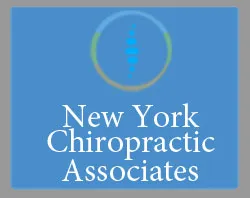- posted: Jul. 19, 2018
What supplements should I take to keep healthy in 2013?
The question
I really want to get healthier this year. Besides a multivitamin, are there any other supplements I should take?
The answer
A multivitamin is a good start, but keep in mind it only serves to reinforce a healthy diet, not replace it. That said, I routinely recommend a multivitamin and mineral supplement to my healthy clients to offset nutrient gaps in their diet, especially if they’re following a lower calorie diet for weight loss.
Besides dieters, there are other people who can benefit by taking a multi. It’s challenging for menstruating women, who have higher iron requirements (18 milligrams/day) than men and postmenopausal women, to get enough of the mineral from foods alone. (Consider that three ounces of lean beef – one of the best sources – has roughly three milligrams of iron.)
A multivitamin is also recommended for adults over 50 since it provides a well-absorbed form of vitamin B12, which is needed for the normal functioning of the brain and nervous system and for making red blood cells. Up to 30 per cent of older adults do not absorb B12 from foods efficiently and, as a result, are at risk for deficiency.
In addition to a multi, I recommend taking 1,000 international units (IU) of vitamin D3 during the fall and winter months to maintain a sufficient blood vitamin D level. Some people may need to take a higher daily dose – and year round – to keep their vitamin D level up. The safe upper daily limit is 4000 IU.
How much vitamin D you need varies with skin colour, body weight, age, season, sun exposure in the summer and your blood level (called 25-hydroxyvitamin D). People over the age of 50 become less efficient at making vitamin D when their skin is exposed to sunlight so they may need year-round supplementation. Adequate vitamin D is important for bone health, immunity and may help guard against high blood pressure and colorectal cancer.
Vitamin C is important, too. The official daily recommended intake is 75 milligrams for women and 90 milligrams for men (smokers need an additional 35 milligrams). However, this is primarily based on the amount needed to avoid deficiency. To prevent chronic disease, research suggests you need 200 to 400 milligrams per day. In addition to eating at least 7 daily servings of fruit and vegetables (combined), consider taking a 200 to 250 milligram vitamin C supplement.
I generally advise my patients to consume 1,000 milligrams of omega-3 fatty acids – eicosapentaenoic acid (EPA) and docosahexaenoic acid (DHA) – per day from fish oil for heart health and brain health. You’ll get this amount by eating 12 ounces of salmon per week. If you don’t like fish, add a fish oil or algae-based DHA supplement to your daily routine.
Get the rest of your nutrients from whole foods. Fruits, vegetables, whole grains, legumes, nuts and lean protein foods deliver vitamins and minerals along with fiber and thousands of protective plant chemicals. It’s a package you can’t get in a supplement.
